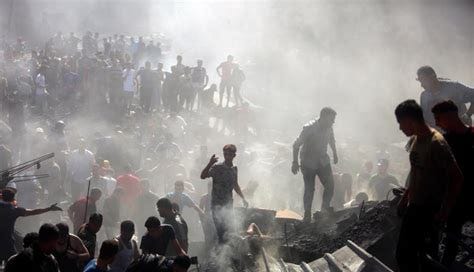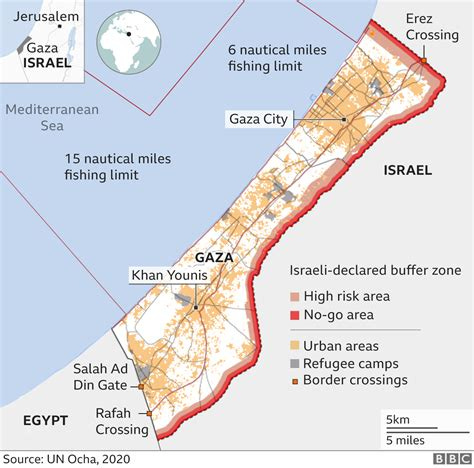Long Awaited Israeli Offensive May Begin, or Not
Will it or won't it? It's been delayed numerous times in the aftermath of Hamas' Oct. 7 attack. In Ukraine delaying its counteroffensive did little good. The counter campaign never got to first base.
What’s taking so long for the Israelis? Is there dissension among the ruling clique? Are the Americans not yet ready to lend support?. Two aircraft carriers are now in position, but a flotilla of destroyers and other ships have not yet arrived. It might be best if they just stayed home. Otherwise, the U.S. may rip the curtain away that it is the U.S. pushing Israeli, and not the other way around.
So far, 8,000 Palestinians, including 4,000 children, in Gaza have died in the shelling and bombing, and as many as 19,000 more have sustained serious injuries. According to Wikipedia, 1,400 Israelis have died since Oct. 7, 2023.
Another reason for Israel’s reluctance to begin its Gaza offensive may be the outpouring of support for Palestinians around the world, including massive rallies in major U.S. cities. It will be hard, if not impossible, for Israel to regain positive public opinion.
On Oct. 27, the UN General Assembly voted on a resolution to call a pause (ceasefire) in the Israeli-Palestinian fighting. The “pause” would allow Gaza residents to return their lives to normalcy, minus dead family members. In a surprise, France voted in favor of the resolution, while Germany abstained. Clearly, some strong Eurpean allies are bowing to massive demonstrations in support of the Palestinians. The U.S. has been slowly losing UN support in its support of Ukraine, but now the roof has fallen in. The centerpiece of US policy has been to avoid a ceasefire. One State Department staffer was fired for supporting the c-word, and another quit in discuss. Now even France has abandoned the American line.
On the same day, German Member of Parliament, Sahra Wagenknecht, announced the formation of a new “peace party,” designed to stop the drift of that country into becoming a U.S. vassell and a military force. Wagenknecht, one of Germany’s most popular politicians, seems to have a winner. Even without a name for the new party, it vaulted into forth position, ahead of the Greens and Free Democrats, according to a poll by the Bild am Sonntag media outlet. Chancellor Olaf Scholz’s party polled just one point ahead of Wagenknecht’s. If her party continues to grow, it would likely move Germany into a neutralist stance between east and west.
Even in Israel, 80 percent of voters would like Netanyahu to just go away. The hostility aimed at the Prime Minister may be revealed in his Oct. 28 statement, “For now, my supreme mission is to save the country and lead our soldiers to total victory.” That is just the point, Benjamin. The country was in no need of saving before he declared war on Hamas. By pushing Palestinians too far – both in Gaza and the West Bank – Netanyahu played a fool, or an autocrat, if he expected Palestinians to just suffer and take it. Long before Oct. 7, Gaza was called the “largest outdoor prison in the world.” Netanyahu showed the world he was incapable of cooperating with people of a different faith and a different culture.
Many voices in Netanyahu’s administration have called for the eradication of the Palestinians. Some leaders of Hamas have done likewise, but they are not the dominant power in the country, or countries. It is Israel that must set the pace for reconciliation and harmony.
Netanyahu and others are also losing the battle to call the Hamas leadership terrorists. It’s not going over well with the thousands of demonstrators, nor is it washing with world leaders. President Recep Tayyip Erdogan of Turkey is one of the world leaders who is definitely not buying it. He showed his feeling by addressing a large crowd of Pro-Palestinians while wearing a scarf around his shoulders emblazoned with the Palestinian and Turkish flags. Earlier in the week, he told a televised audience, “Hamas is not a terror organization,” calling it “an organization of liberation.”
Yes, it may be a long war for Israel. Why not call a ceasefire (pause) and negotiate? That would give both sides time for a new election, and to find out if the Israeli and Palestinian public really wants this war. What is the alternative if the fighting gets more intense? It may be that more countries piling on Israel until it is forced to cooperate with its neighboring countries.
“Chaos and Disorder: The Wild and Scary 2020s”
Available at your local bookstore or Amazon.
Educate your friends with a “Chaos” Book Club





